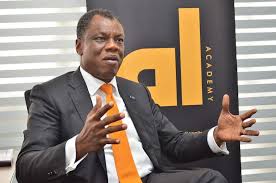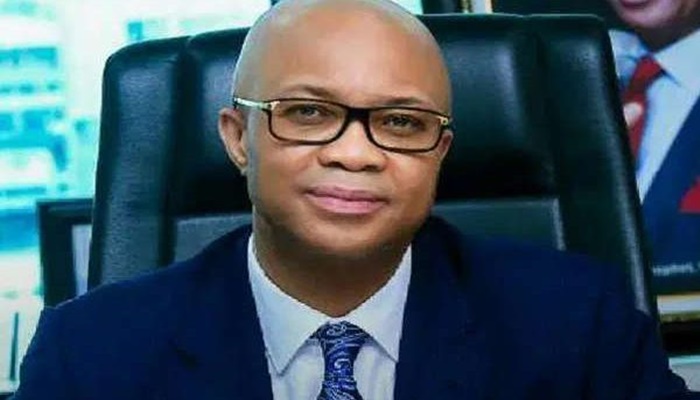
Baru,GMD,NNPC
By Sanya Ademiluyi, editor
Dr Maikanti Baru, current group managing director of the Nigerian National Petroleum Corporation, NNPC appears determined to spearhead a change at the country’s oil octopus.
Few weeks ago, Baru staged what can be considered the corporation’s first open bidding session for crude oil lifting contracts in several years. For many years ,the shadowy state-owned oil corporation has kept its oil contracts behind its heavy doors. That has been one source of the usual barrage of criticism of the NNPC and deepens its public perception as a shadowy, arrogant ,dubious and opaque’ government company. Little surprise that calls for its scrapping are typically strident among Nigerians and are often openly supported by public officials themselves.
But the NNPC is more than a cat with the proverbial nine lives. It has survived countless adventures to break it up. With the latest open oil lifting contracts bidding session staged by Baru and his management team, the corporation may be trying to reform its old ways and perhaps, re-invent itself.
Unsurprisingly, over 220 companies both local and international were involved in the bidding session, with the public opening of the bids performed on Thursday,September25,2016 at the oil corporation’s imposing towers in Abuja and televised live on the state-owned TV network, NTA.
Expectedly, big Western-based international oil traders such as Glencore and Vitol dominated the bidding. Other strong global contenders are some refineries who want a steady stream of crude supplies. There were some entries from Asia such as ONGC Videsh from India, signalling the growing position of India as one of the country’s biggest oil importers. Some Nigerian companies also showed there strength in this area by actively bidding for crude oil cargoes, against a strong international contenders. The Nigerian companies include Forte Oil, owned by oil trader, Femi Otedola and MRS, another petroleum products trading company, owned by another big Nigerian oil trader, Sayyad Abdusalam. Most of the bidders kept sealed lips over the conduct of the opening of bids, apparently not wanting to jeopardize their chances. The list of successful bidders would not be released until February when the bidding process would be concluded according to the NNPC group managing director.
It is not clear if some Nigerian oil prospecting companies that were given crude oil lifting allocations few years ago were part of this bid. Baru said that roughly 700,000 barrels of crude oil per day is involved in this auction. The multinational Joint venture partners of the NNPC would contribute the bulk of 600,000 barrels/day, while other prospectors, who are mostly indigenous oil producers would contribute an output of 100,000 barrels per day. This is basically tax oil which accrues to the NNPC from these oil producers.
At the session, Baru explained that the number of bidders may have reduced by about 50 because of the setting of more conditions for the would be bidders. Baru seized the occasion to dispel small talk that demand for Nigerian oil was weak ,in a midst of a global weakening in oil demand and oil prices. But Baru said that demand for Nigerian crude remains strong.
Traditional Nigerian crude oil streams include Bonny Medium, Brass River, Forcados, Qua Iboe ,Penington and Escravos and perhaps, the country’s most popular, Bonny light. But newer crude streams have emerged since the early 2000s,from deep offshore discoveries and a handful of small inland fields in the Niger Delta. These include Agbami and Bonga.
Baru toots the resilience of Nigerian crude oil streams. Says Baru: Contrary to a lot of speculation that a lot of Nigerian crude goes to China, they do not. Most of them are consumed and refined in India and Europe. Particularly, last year and this year, most of Nigerian crude end up in European refineries.”
The bid opening session marks the beginning of the NNPC’s 2016/2017 term contract crude oil tender, according to the NNPC. Then,Baru says pointedly: “when we sell this crude the money goes straight to the Central bank of Nigeria accounts, on behalf of the federation. The NNPC does not operate any of those accounts.” Western banks such as JP Morgan and HSBC have been known to act as receiver banks for earnings from Nigerian crude oil sales.
But that is only one area where the corporation has faced charges of wrongdoing, centred mainly on fraudulently retaining some of the country’s oil earnings running into billions of US dollars. Nigerian Petroleum Development Company, a wholly owned NNPC oil prospecting and production company produces almost 10,000 barrels of oil per day. Most of the revenue of sales of this oil is believed to go to the NNPC rather than the Federation account. In the past, NNPC had fended off criticism of keeping a sizeable part of the country’s oil revenue to itself,by saying that it has to fund its own exploration activities which are mostly in US dollars, among other running costs.
Obviously,Baru and his management team at the NNPC would have to do far more than stage a successful crude oil sales bid opening to convince Nigerians that the oil giant is changing from its shadowy ways.










